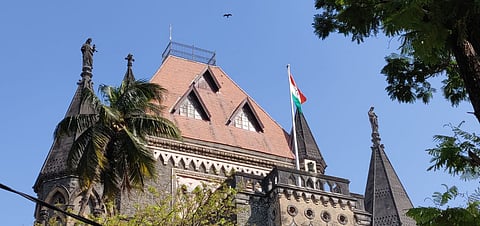

THE Bombay High Court, in a significant judgement, on Friday granted bail under UAPA to an accused who is alleged to have been part of a conspiracy and had been in contact with the banned terror outfit, Islamic State (ISIS).
A division bench of Justice SS Shinde and NJ Jamadar held that the material against the accused, Iqbal Ahmed Kabir Ahmed, prima facie, did not appear to be of such quality as to sustain a reasonable belief that the accusation against him was true.
Iqbal Ahmed Kabir Ahmed allegedly seconded the views of his co-accused who supported the activities of ISIS. The court found that such statements appeared to be in the realm of discussion and deliberation which the accused and witnesses, had but there was no material to indicate that Ahmed instigated the commission of an offence or insurgency. Nor was there prima facie material to indicate that he advocated violent actions, the court pointed out.
The high court accepted the argument of Senior Advocate Mihir Desai, for the accused, that the material against Kabir was in the realm of discussions and thus would not constitute any offence. In Support, Desai cited the Supreme Court's judgement in Shreya Singhal vs. Union of India. which held mere discussion or even advocacy of a particular cause howsoever unpopular is part of the freedom of speech and expression and it is only when such discussion or advocacy reaches the level of incitement reasonable restrictions on the freedom of speech and expression kicks in.
An oath form (baith) was also recovered from the house of the accused which was a declaration of the acceptance of one Abi Bakr Al Baghdadi Al Hussaini Al Quraishi as the "Caliph" of the Muslims. The court, however, said the mere possession of such oath form, without subscribing thereto, did not appear to be an incriminating circumstance. It pointed out from the prosecution record itself, the contents of the oath form were not in the handwriting of the accused.
The court also negated the argument of the prosecution that an electric switchboard in the house of the accused was used to solder material to prepare a bomb and that, thus, he took part in the conspiracy to commit terrorist acts.
It pointed out nothing incriminating had been recovered from the possession of the accused in the context of the charge of preparing IEDs. Moreover, he had not been charged with the offence punishable under the Explosives Substances Act, 1908.
"The fact that the co-accused has pointed the switchboard in the house of the accused, where the material was allegedly soldered, without seizure of any article or material therefrom, prima facie, may not amount to the discovery of a fact which distinctly relates to the said disclosure statement", the high court said.
Besides granting the bail on merits, the high court also highlighted the long incarceration of the accused as an undertrial. He was arrested in 2016 and had been in jail since then. It said the recording of evidence was yet to commence. By any standard, it is very unlikely that the trial would be concluded within a reasonable period.